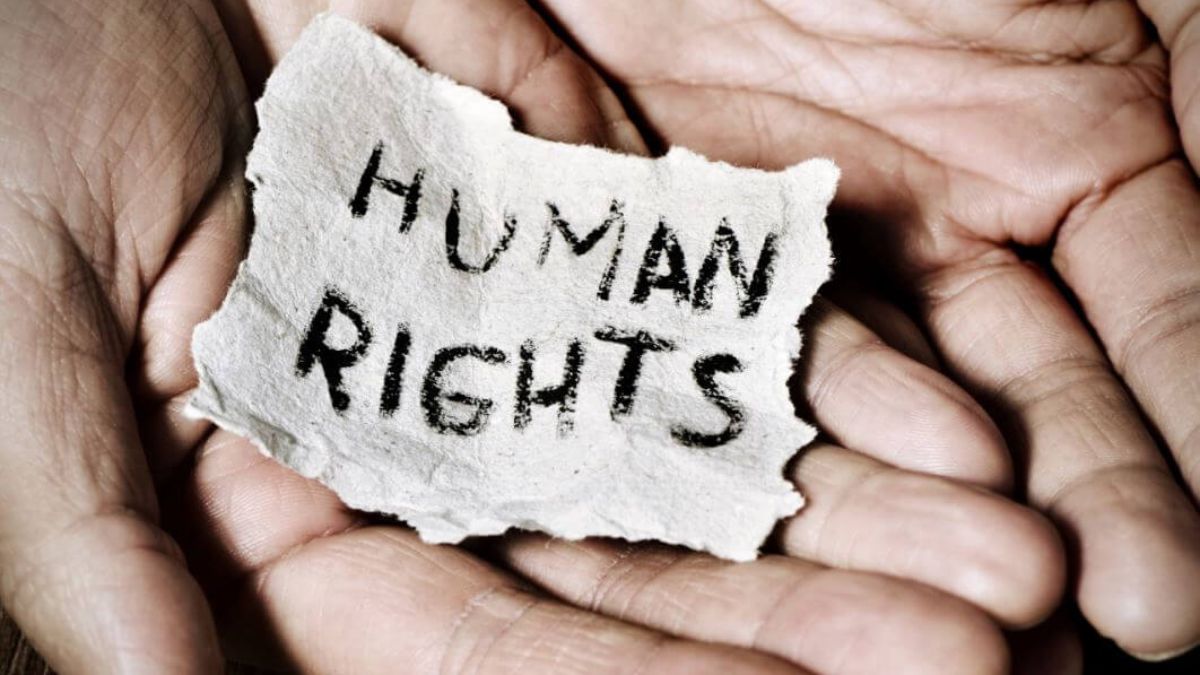LAW
Why Personal Injury Cases Fail and How to Avoid Common Pitfalls

Personal injury claims are essential for securing justice when harm results from someone else’s actions. They address incidents like car accidents and medical mistakes, enabling victims to recover compensation for physical, emotional, and financial losses. Yet, obstacles such as insufficient evidence, poor documentation, and thorough insurance negotiations often hinder successful outcomes.
Awareness of common challenges in personal injury cases empowers victims to handle the process effectively. From organizing important documentation to managing interactions with insurance adjusters, a personal injury lawyer can provide valuable guidance. Taking proactive steps can help victims overcome barriers and improve their chances of holding responsible parties accountable.
Why Evidence Matters in Personal Injury Claims
A weak claim often results from insufficient evidence, which can undermine even the strongest cases. Clear documentation, such as detailed police reports, medical records, and photographs of injuries or the accident scene, is essential to establish what happened. Missing these key pieces of evidence, along with the absence of corroborating witness statements, can leave a claim unsubstantiated and vulnerable to disputes. For example, photos showing hazardous conditions or video footage of the incident can strongly support a claim.
Delaying medical treatment creates another major issue, as waiting to see a doctor can cast doubt on the severity of injuries and their link to the incident. Medical records generated immediately after the accident establish this connection clearly. Reporting errors, such as inconsistencies in timelines or details, and accepting low initial insurance offers without review can further weaken a claim and complicate recovery efforts.
Staying Consistent and Credible
Consistency in statements is vital during legal proceedings. If a claimant’s story changes, it can raise doubts about their honesty and weaken the case. Opponents can use these inconsistencies to question the victim’s credibility. Victims should carefully communicate facts and remain truthful in all interactions to protect their claim’s integrity.
It’s also important to understand comparative fault. Different areas handle this rule differently, but it involves determining how much blame each party shares. If the victim is partly at fault, their compensation could be reduced. Meeting deadlines for filing claims is just as important. Missing these deadlines can stop victims from taking legal action.
Dealing with Insurance Companies
Insurance adjusters are trained to protect their companies, which often means minimizing payouts. Many victims underestimate how skilled adjusters are at disputing claims or downplaying damages. Adjusters know how to find weaknesses, so claimants need to approach negotiations carefully. Without legal help, victims may end up with less compensation than they deserve.
Good communication with insurance companies is vital. Misunderstandings or sharing too much information can hurt a case. Adjusters may use unnecessary details to build a case against the victim. Clear, careful communication can prevent these problems. Knowing what to say—and what not to say—is key. Victims with legal support are better prepared to handle tactics aimed at reducing their compensation.
Insurance adjusters are trained to protect their companies, which often means minimizing payouts. Many victims underestimate how skilled adjusters are at disputing claims or downplaying damages. Adjusters know how to find weaknesses, so claimants need to approach negotiations carefully. Without legal help, victims may end up with less compensation than they deserve. If you’re facing a personal injury claim, injury lawyer Hollywood FL can provide expert legal guidance to ensure you don’t fall victim to unfair settlement tactics. A skilled lawyer can negotiate on your behalf, protect your rights, and help you secure the compensation you deserve.
Steps to Strengthen a Claim
Taking proactive steps is a must in personal injury claims. Victims should document incidents thoroughly by taking photos, gathering witness contacts, and creating a clear timeline. This evidence strengthens the case and provides valuable support during negotiations or court proceedings, helping to establish what happened and who is responsible.
Seeking immediate medical care is essential. Prompt treatment creates a clear link between injuries and the incident while generating medical records vital for claims. Collaborating with an experienced personal injury lawyer simplifies the process, reduces errors, and aims to achieve fair results.
Communication and Record-Keeping
Effective communication plays a vital role in personal injury cases. Regular updates and transparent discussions with a lawyer help victims stay informed and provide attorneys with all necessary details. This collaborative approach strengthens the case and reduces the risk of overlooking important information.
Keeping thorough records is another must. Tracking all expenses, lost wages, and emotional impacts paints a complete picture of the damages. Staying aware of deadlines and procedures avoids the risk of losing a case over missed details. Following legal advice can also reduce stress and improve outcomes.
Understanding why personal injury claims fail helps build a roadmap for success. Common pitfalls include weak evidence, inconsistent statements, and poor communication with insurance companies. To improve your chances, document the incident thoroughly, seek immediate medical attention, and work with an experienced lawyer. Staying organized and proactive can reduce errors and stress. Plan carefully and take the time to evaluate the full impact of your damages before accepting any settlement. With these steps and the right legal support, victims can better manage the challenges and increase their likelihood of achieving fair compensation.
LAW
The Importance of Ombudsmänner in Protecting Citizens’ Rights

In a world where bureaucracy can sometimes feel overwhelming, the role of ombudsmänner emerges as a beacon of hope for citizens. These dedicated officials serve as advocates, ensuring that individuals have a voice when facing challenges with public services and institutions. Whether it’s addressing complaints about unfair treatment or safeguarding rights against injustices, ombudsmänner are essential players in the landscape of governance.
But what exactly do they do? And why does their work matter so much to everyday people? Join us as we explore the fascinating journey of ombudsmänner, their vital functions in protecting citizens‘ rights, and some remarkable stories that highlight their impact on society. Let’s dive into this crucial topic together!
What is an Ombudsman?
An ombudsman is an independent, impartial official who investigates complaints and disputes between individuals and public authorities. They act as intermediaries, ensuring that citizens have access to fair treatment within government systems.
Typically appointed by the government or a specific organization, ombudsmänner play a vital role in promoting transparency and accountability. Their work often involves looking into issues like maladministration, discrimination, or violations of rights.
These officials not only address individual grievances but also identify systemic problems within institutions. By doing so, they contribute to improving policies and procedures that affect many people.
Ombudsmänner serve as trusted advocates for ordinary citizens navigating complex bureaucracies. Their presence helps foster confidence in public services while empowering individuals to speak up against injustices they may face.
History and Development of Ombudsmen
The concept of an ombudsman dates back to Sweden in the early 19th century. The term “ombudsman” comes from the Swedish word meaning representative. Initially, these officials were designated to handle complaints against government actions.
As democratic principles spread across Europe, other countries saw the value in appointing similar figures. By the mid-20th century, nations like New Zealand and Finland adopted their own versions, emphasizing accountability and transparency in governance.
Over time, the role evolved beyond governmental oversight. Today’s ombudsmänner address issues within private organizations as well. They serve as vital links between citizens and institutions, ensuring that everyone has access to justice.
With advancements in technology and communication, modern ombudsmen have expanded their reach significantly. They utilize digital platforms for filing grievances, making it easier for individuals to seek help when needed.
The Role of Ombudsmen in Protecting Citizens’ Rights
Ombudsmen play a crucial role in ensuring that citizens’ rights are upheld. They act as intermediaries between the public and institutions, providing an essential platform for grievances.
When individuals face injustices or bureaucratic hurdles, ombudsmänner step in to investigate complaints. Their impartial stance allows them to address issues fairly and transparently.
Moreover, these advocates promote accountability within organizations. By addressing systemic problems, they ensure that policies are not only followed but also evaluated for fairness and effectiveness.
Through mediation and recommendations, ombudsmen foster dialogue. This often leads to resolutions that benefit both parties while reinforcing trust in public services.
Their presence empowers citizens by giving them a voice against potential abuses of power. Ombudsmänner stand as guardians of justice in society, helping maintain the balance between authority and individual rights.
Types of Ombudsmen
Ombudsmänner come in various forms, each tailored to address specific issues and sectors.
Government ombudsmen focus on public administration. They handle complaints regarding government agencies, ensuring transparency and accountability.
Corporate ombudsmen operate within businesses to resolve employee grievances or customer disputes. Their role fosters trust between the company and its stakeholders.
Educational ombudspersons serve students and faculty members alike. They tackle concerns related to academic institutions, promoting fairness in policies and procedures.
Healthcare ombudsmen advocate for patients’ rights, addressing complaints about medical services. They ensure that healthcare providers meet standards of care.
Specialized ombudspersons exist for unique sectors such as finance or environment. These professionals work diligently to protect citizens’ interests across diverse fields. Each type plays a crucial role in maintaining justice and equity within their respective spheres.
How to File a Complaint with an Ombudsman
Filing a complaint with an ombudsman can seem daunting, but it doesn’t have to be. Start by identifying the appropriate ombudsman for your issue. Different sectors have specialized representatives.
Once you’ve located the right office, gather all necessary documents related to your complaint. This might include emails, letters, or records of previous communications. Clear evidence strengthens your case.
Next, visit the ombudsman’s website for specific filing instructions. Many offices offer online forms that make submission easy and efficient. If you prefer speaking directly to someone, consider calling their office for guidance.
Be concise in explaining your situation and clearly state what resolution you’re seeking. Avoid emotional language; stick to facts as much as possible.
Once submitted, keep track of any correspondence from the ombudsman’s office regarding updates or requests for additional information.
Success Stories: Examples of Ombudsman Interventions
Ombudsmänner have made significant impacts in various cases, showcasing their essential role in advocating for citizens. One notable success story involved a group of tenants facing unjust eviction. The local ombudsman intervened, mediating between the landlords and tenants to ensure fair treatment. This led to a resolution that allowed families to remain in their homes.
Another example comes from the realm of healthcare. A patient filed a complaint against a hospital regarding inadequate care during surgery. The ombudsman conducted an investigation, uncovering systemic issues within the facility’s practices. As a result, new protocols were established, ultimately improving patient safety.
In education, an ombudsperson helped resolve disputes over special needs services for students. By facilitating communication between parents and school officials, they ensured children received appropriate resources tailored to their unique requirements.
These stories highlight how effective intervention can lead to meaningful change and reinforce trust between authorities and citizens.
Challenges and Criticisms Faced by Ombudsmen
Ombudsmen play a crucial role in advocating for citizens’ rights, yet they face several challenges. One major issue is the lack of power. Many ombudsmänner can investigate complaints but have limited authority to enforce their recommendations.
Another challenge stems from public awareness. Not everyone knows about the existence of these offices or how to reach them. This can lead to underutilization, undermining their potential impact.
Additionally, ombudsmen often deal with bureaucratic resistance. Government agencies or private organizations may be reluctant to cooperate fully during investigations, hindering progress.
Critics also argue that some ombudsmänner might not represent all demographics equally, leading to concerns about impartiality and fairness in handling cases.
With rising expectations from the public, there’s pressure on these entities to deliver timely resolutions while navigating complex legal frameworks. Balancing effectiveness with limited resources remains an ongoing struggle.
Conclusion
Ombudsmänner play a vital role in ensuring that citizens’ rights are protected and upheld. Their existence is rooted in a rich history, evolving from early forms of advocacy to modern institutions designed for accountability. They embody the principle that everyone deserves a voice, especially when they feel wronged.
The various types of ombudsmänner serve different sectors—from local governments to healthcare systems—making it easier for individuals to seek help relevant to their specific issues. Filing a complaint with an ombudsman can be straightforward, empowering citizens by providing them with clear steps and guidance throughout the process.
Success stories abound where ombudsmänner have made significant impacts on individual lives or even broader systemic changes. These interventions highlight the importance of having impartial advocates working within our communities.
However, like any institution, ombudsmänner face challenges and criticisms that can hinder their effectiveness. Resource limitations and societal perceptions can pose obstacles that impact how well they fulfill their mission.
Despite these hurdles, the fundamental purpose remains: protecting citizen rights against injustices encountered in various public domains. The ongoing evolution of this role reflects society’s commitment to ensuring fairness and transparency at all levels of governance.
As more people become aware of what an ombudsman can do for them, we may see increased engagement with these important figures who tirelessly work towards safeguarding our collective rights.
LAW
How Expert Witnesses Can Help You Win Your Truck Accident Case

Truck accidents are pretty common in Albuquerque. If you’ve been hurt in a truck accident, you already know how confusing and stressful everything can feel. You might be dealing with serious injuries, car damage, lost work, and a lot of insurance paperwork. That’s where the right support matters—and one powerful way to strengthen your case is by using expert witnesses. They can help you in truck accident cases in Albuquerque. If you’re working with a truck accident lawyer in Albuquerque, they can help bring in the right experts to make sure your side of the story is fully understood and backed by facts.
What Is an Expert Witness?
An expert witness is someone who has deep knowledge or experience in a certain area—like trucking rules, crash science, or medical care. They are not just regular witnesses who saw what happened. Instead, they give their professional opinion based on their field of work.
For example, a crash reconstruction expert can explain how the accident happened, who was speeding, or whether the truck driver was at fault. A medical expert can explain how badly you were hurt and what kind of treatment you’ll need in the future.
These expert opinions carry a lot of weight in court. Judges and juries often rely on them to understand the facts better and make fair decisions.
Types of Expert Witnesses in Truck Accident Cases
There are different types of expert witnesses that a truck accident lawyer might bring into your case:
- Accident Reconstruction Experts
These experts use science and math to explain how the crash happened. They look at skid marks, damage to the vehicles, road conditions, and more. Their goal is to show who caused the crash and why. - Medical Experts
These are doctors or healthcare professionals who can talk about your injuries. They help prove that the crash caused your pain and show how it affects your life. They also explain if you’ll need more treatment in the future. - Trucking Industry Experts
These people know the rules and standards that truck drivers and companies must follow. They can tell if the truck driver broke any rules—like driving too many hours without rest or not checking the truck before driving. - Financial Experts
They help show how the accident has affected your finances. This includes lost wages, medical bills, or even the cost of long-term care.
Why Expert Witnesses Matter
In a truck accident case, the other side will often try to blame you or downplay your injuries. Expert witnesses can help protect you from this by explaining things clearly and with proof. Their job is to turn confusing or complicated information into simple facts that a jury can understand.
For example, maybe the truck driver says they weren’t speeding. A reconstruction expert can show, based on data and damage, that they were. Or if the insurance company says your injuries are not that serious, a medical expert can prove how painful and life-changing they really are.
Having expert witnesses gives your case a strong foundation. It’s not just your word against theirs—it’s your word plus solid, professional backing.
Your Lawyer Will Handle the Experts
Don’t worry about finding or talking to expert witnesses yourself. A skilled truck accident lawyer knows exactly who to contact and when to bring them in. They’ll handle all the legal details so you can focus on healing.
The lawyer works with the experts to build a timeline of what happened, gather documents, and prepare everything for trial if needed. Often, having expert witnesses makes your case so strong that the other side may settle without going to court.
Conclusion
If you’ve been in a truck accident, don’t try to fight the case alone. With the help of a truck accident lawyer, expert witnesses can make a big difference in proving what really happened and getting you the money you deserve. They bring the facts, the science, and the proof that helps win your case.
You deserve support that’s strong, clear, and on your side—and expert witnesses are one of the best tools to get there.
LAW
How to Handle Warranty Disputes in Los Angeles Lemon Law Cases

Car buyers expect one thing after making a big purchase: reliability. When a new or certified vehicle breaks down repeatedly, frustration builds quickly. That frustration can turn into a legal issue when the manufacturer refuses to honor the warranty. This is where the lemon law becomes relevant, particularly when defects are persistent and repairs fall short.
In Los Angeles, the volume of car purchases and leases is among the highest in the country. The city’s dependence on vehicles makes reliability critical. That’s why California’s lemon law is especially important here, offering legal protection when manufacturers fail to stand by their promises.
If you’re facing repeated issues with your vehicle, a qualified Los Angeles lemon lawyer can guide you through the warranty dispute process. Legal support helps ensure your claim is taken seriously and that the manufacturer responds appropriately within the law’s required timeframes.
Let’s break down how to approach warranty disputes under California’s lemon law, from documentation to final resolution.
Start with a Clear Understanding of the Warranty
Before taking legal steps, you must understand your warranty coverage. California’s lemon law primarily protects consumers during the manufacturer’s original warranty period. This includes both new and certain certified pre-owned vehicles. Your warranty should specify repair obligations, covered parts, and duration. Keep in mind that the law doesn’t require unlimited repairs. Instead, it allows a reasonable number of attempts before a vehicle is considered a lemon.
Document Every Repair Attempt
Documentation is your most important tool in any lemon law dispute. Keep all service records, repair orders, invoices, and communication with the dealership or manufacturer. Each visit should clearly list the issue reported, the actions taken, and whether the problem was resolved. A consistent trail of the same unresolved defect strengthens your claim significantly. Without it, the manufacturer may argue that repairs were successful or that the issue is unrelated.
Notify the Manufacturer Formally
Once a problem recurs, California law requires that the manufacturer be given a fair opportunity to repair the defect. This usually means at least two to four repair attempts for a serious issue or a single attempt if the defect is safety-related. Formal written notice to the manufacturer is essential, especially if the dealer has not communicated effectively on your behalf. Certified mail or email with delivery confirmation ensures there’s proof of your notice.
Watch for Warranty Denial Tactics
Manufacturers may attempt to deny responsibility by blaming driver misuse, third-party repairs, or issues outside warranty coverage. Don’t accept these responses without scrutiny. Review the language of your warranty carefully. If your claim is rejected or delayed without justification, it may be time to escalate the issue. California’s lemon law offers strong consumer protections, but only if you assert your rights.
File a Lemon Law Claim If Necessary
If the manufacturer doesn’t resolve the issue, you may have grounds to file a lemon law claim. This can lead to a refund, vehicle replacement, or cash compensation. California’s law also requires the manufacturer to pay your attorney’s fees if you win, which means legal representation is often available at no upfront cost. A successful claim requires evidence, timelines, and detailed documentation — all of which should be prepared in advance.
Mediation and Litigation Options
Some cases settle quickly through negotiation or mediation, especially when the legal grounds are clear. Others may require filing a lawsuit in civil court. An experienced lemon law attorney will know which route gives you the best chance for success. In either case, having legal guidance means understanding what’s negotiable and when to push harder for full compensation.
Final Thoughts
Warranty disputes can feel overwhelming, especially when your transportation and finances are on the line. But with the right preparation, knowledge, and support, you can hold manufacturers accountable. California’s lemon law exists for this very reason — to protect buyers when promises are broken.
-

 TECHNOLOGY5 days ago
TECHNOLOGY5 days agoTop 10 Must-Read Stories from Kristen Archives You Can’t Miss
-

 TECHNOLOGY6 months ago
TECHNOLOGY6 months agoSky Bri Net Worth Revealed: How She Built Her Financial Empire
-

 TOPIC8 months ago
TOPIC8 months agoBasement Renovation Contractors: How They Tackle Structural Issues During Renovations
-

 TOPIC3 months ago
TOPIC3 months ago5 Reasons the //Vital-Mag.Net Blog Dominates Lifestyle
-

 TOPIC4 weeks ago
TOPIC4 weeks agoTop 10 Articles from the ://Vital-Mag.net Blog That You Can’t Miss
-

 CRYPTO4 months ago
CRYPTO4 months agoCrypto30x.com Review: Is It the Right Platform for You?
-

 BUSINESS1 week ago
BUSINESS1 week agoTraceLoans Explained What You Need to Know
-

 BUSINESS3 weeks ago
BUSINESS3 weeks agoDecoding the Kennedy Funding Ripoff Report: Facts vs. Fiction
